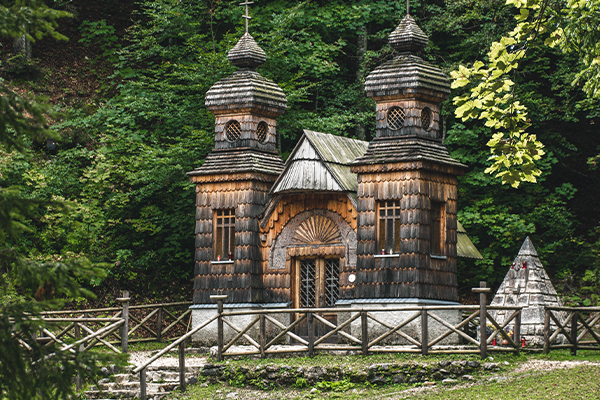The Russian Revolution of 1917 was one of the most significant events in the 20th century. It not only completely changed the government and outlook on life in the very large country of Russia, but also involved the collapse of an empire under Tsar Nicholas II and the rise of Marxian socialism under Lenin and his Bolsheviks. While Czar Nicholas II was an unpopular Russian leader, he was the descendent of a long line of czars, one stretching back into the mists of 300 years of Russian History(McNeese 241). In my opinion, it sparked the beginning of a new era in Russia that had effects on countries around the world. Besides, Russia revolution had a lot of things in common with the French Revolution. However, the difference between them were also quite obvious. I will make a compact research on these aspects in this article too.
Before the ignition of Revolution of 1917, Russia in fact had a succession of wars, for example, the Crimean War (1854-56)(Candan 2), the Russo-Japanese War (1904-1905)(Westwood 1), and World War I (1914-18)(Cigliano 3). All of these required a large amount of tax dollars and manpower. Russia’s defeat in wars caused great discontent among the people and long term of war had destroyed the country’s economy. This was the main reason that led to the revolution. Besides, the weakening of the autocracy, the search for better rights and status of the Russian, and the work of revolutionary organization also accounted for the ignition of the revolution. The goal of this revolution is to overthrow the imperial regime and present the takeover as a revolution in the name of the workers’ soviets. The leaders of this movement were Bolshevik and Lenin. Both of them belonged to Bolshevik party, led by Lenin.
In my mind, World War 1 was one of the main factors to the Russian Revolution.
World War 1 resulted in millions deaths of Russians. Besides, Czar Nicholas II was the highest ranking officer in the Russian Army, but he was not able to direct combat and win battles led to millions of casualties. The war was not easy for him, however, Nicholas refused to back out. His stupid decision angered the Russian population. Therefore, World War 1 largely reduced the faith and confidence that the Russian population had to their ruler. What’s worse, the population got angered, which led to the unrest preceding the Russian Revolution.
On October 26th, the Congress voted a Council of People’s Commissars to be the basis of a new government. This new organization promptly held a political repression campaign and arrested the leaders of opposition parties. This action was regarded as a way tearing apart freedom of speech and association promises. During this process, major members of the Constituent Assembly and the Socialist-Revolutionary Party were imprisoned in The Peter and Paul Fortress in Petrograd. So were the Constitutional Democratic Party (Kadets) as well as Menshevik leaders.
In early July, widespread discontent in Petrograd led to militant demonstrations, which called for the overthrow of the Provisional Government. Troops loyal to the Provisional Government suppressed the demonstrations violently. Lenin escaped capture, went into hiding. He wrote State and Revolution, which outlined his ideas for a socialist government. The time for revolution had arrived, he contended, and violence was an absolute necessity if that revolution were to be secured(Davenport 74). In October, Lenin agreed the arrest of their Military Revolutionary Committee and orders were issued for the Bolsheviks’ Red Guards to occupy key locations in the city and surround the Winter Palace. Finally, the revolution won.
On one hand, there were many similarities between Russian Revolution and French Revolution. Both French and Russian Revolutions had a famine and a weak ruler. Besides, they both had a political force pushing for change and financial debt from war as well. Moreover, they were both centered around a push for class equality. However, the main points of the Russian were centered around a war, while the main points of the French Revolution were more centered around a push for class equality.
On the other hand, French Revolution and Russian Revolution present many differences between them when comparing their results and the way they operated. First, the time of them were different. The former took place between 1789 and 1799, while the later took place in 1971 during the World War 1. Therefore, the impact of the revolution on Russia was far greater. Second, the French revolution was derived from a bad economy with the bad leadership of Louis XVI and unbearable taxes while the later was derived from the bad leadership of Tsar Nicolas II and a bad economy. Third, French revolution was ignited for democracy while Russian revolution was ignited for communism.
Additionally, in both the periods of the French and Russian Revolution, women’s rights and social status had been improved. Nevertheless, during the French Revolution this facet was of far greater concern to the Bolsheviks than to those in France. At this point , after only a year in power, the Bolsheviks submitted the New Family Code encompassing everything from divorce, abortion, marriage, alimony, land rights ,and most importantly, stated that women’s civil status was of course equal to that of men.
For its admirers, the Russian Revolution is a milestone in human progress; for its critics, it is a catastrophe of monstrous proportions(Spence 1). Indeed, the Russian Revolution not only had a significant impact on its country, but also on the wh

